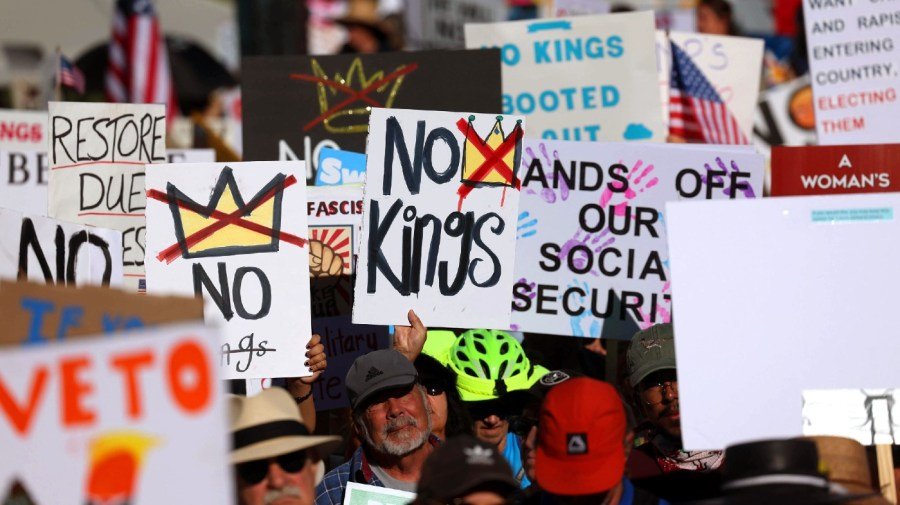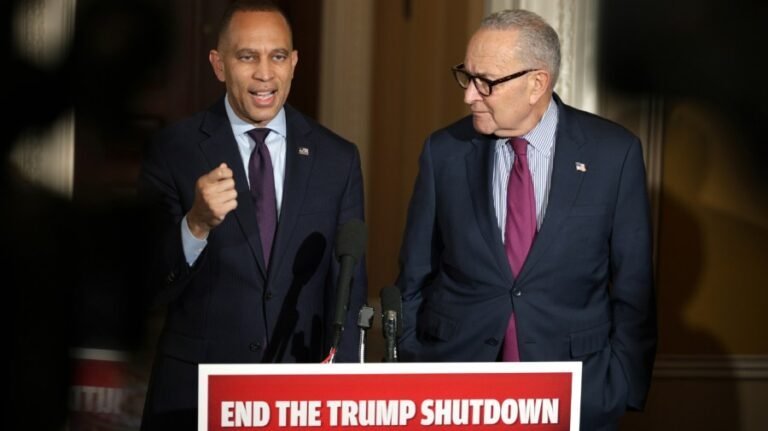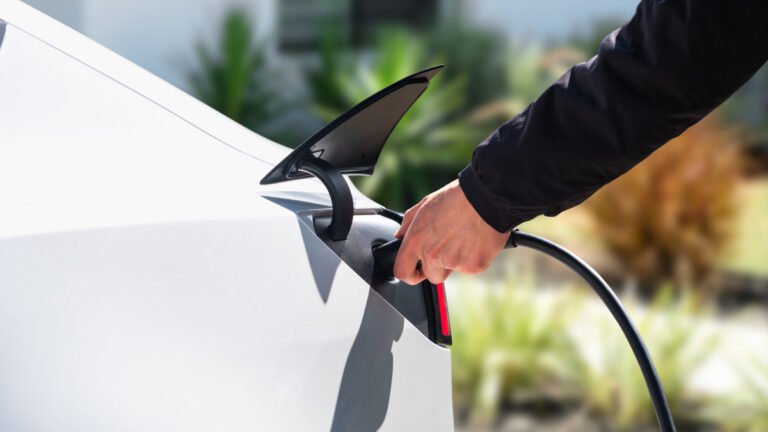
Some Democrats skeptical about their leadership’s hard-line stance against reopening the federal government privately acknowledge that they fear getting “hammered” by their liberal base if they vote for a Republican funding bill.
Grassroots Democrats frustrated with the Trump administration have been demanding a fight, and on Saturday millions showed up at “No Kings” demonstrations across the country to protest the president’s government.
In that context, Democrats know they will get hit hard by a number of voices on the left if they do not get something for opening the government.
“People are going to get hammered” if they vote for the House-passed bill to reopen the government and keep it funded through Nov. 21, said one Democratic senator who requested anonymity to talk candidly about their party.
A second person familiar with the political dynamics within the Senate Democratic caucus, who spoke with The Hill ahead of the “No Kings” protests, said centrist senators are fearful of breaking with leaders while party activists are planning the anti-Trump rallies.
“We would have enough votes” to reopen the government “if people were not terrified of getting the guillotine,” the second person said.
Only three members of the Democratic caucus have voted to reopen the government: Sens. John Fetterman (Pa.), Catherine Cortez Masto (Nev.) and Angus King (Maine), an Independent who caucuses with Democrats.
On Thursday, Sen. Jeanne Shaheen (N.H.) became the fourth Democrat to signal unease with the party’s staunch opposition to what in normal times would be relatively uncontroversial funding bills when she voted Thursday to advance an $852 billion defense funding bill.
Liberal activists called the votes to fund the Department of Defense and to reopen the government without Republican concessions on health care “baffling” and a “mistake.”
“Sens. Shaheen, Cortez Masto, and Fetterman voting with Republicans today is baffling,” said Andrew O’Neill, the national advocacy director at Indivisible, a progressive group.
“This was not a good faith effort from Republicans to end the shutdown with bipartisan negotiations,” he added. “It was GOP political theater, and these three Democrats joined right in.”
Fetterman pushed back against that criticism and defended his vote for the defense spending bill as motivated by concern for military families who might have to rely on food banks if they stop getting paychecks.
“I voted yes to pay our service members. That’s service members over party. That’s not baffling to me,” he said.
All of this is music to the ears of Republicans, who want centrist Democrats to feel the pain.
Senate Majority Leader John Thune (R-S.D.) plans to keep holding votes on a House-passed continuing resolution, hoping to pick up at least five more Democratic votes so the government can reopen.
Democratic senators acknowledge a handful of their colleagues would love to end the tense standoff over federal funding, but they say those members are worried a liberal backlash could end their political careers.
“Are there enough Democrats to join Republicans to reopen the government? Not in the near term,” said the Democratic senator who requested anonymity. “There is no bipartisan conversation that’s anything but bulls‑‑‑.”
The senator said centrist Democratic colleagues would vote to open the government “yesterday” if left to their own devices but don’t want to risk an angry backlash from the base.
Emma Lydon, the managing director of P Street, the government relations sister organization of the Progressive Change Campaign Committee, said Democrats who vote for the House-passed short-term funding bill are making a “mistake.”
She said voting to reopen the government when millions of Americans are projected to lose their health insurance due to rising premiums “would be out of step with what the American people want.”
“What Republicans are trying to do is dismantle the ACA brick by brick,” she said, referring to the Affordable Care Act.
Lydon said Senate Democratic Leader Chuck Schumer (N.Y.) and the nine other Senate Democrats who voted for a partisan House-passed government funding bill in March in order to avoid a shutdown made a “mistake.”
“It’s been clear to them that the American people don’t want to see a Democratic Party that capitulates to Republican extremism. They want a party that stands up for people’s health care, that stands up for our democracy and that’s what they’re doing now,” she said.
Democratic strategists say the main driver of the political fear within the Democratic caucus is online fundraising, which is largely driven by social media.
Sources familiar with the political motivations driving the Senate Democrats’ shutdown stance point to Sen. Jon Ossoff (Ga.), who is the most vulnerable Senate Democrat up for reelection in 2026, as an example of the dilemma facing Democrats.
One Democratic insider argued that Ossoff, who represents a swing state that voted for President Trump in 2024, needs to raise money from the liberal base to win.
“His calculus is, ‘Do I vote to open the government up and get crushed and can’t raise a single dollar of low-dollar money or do I vote to shut the government down and get $3 million [from online fundraising]?’” the source argued.
Ossoff has voted 10 times against the House-passed funding bill and voted on Thursday against advancing bipartisan bill to fund the Department of Defense.
The first-term Democratic senator said he’s always ready to work across the aisle to solve problems and blamed House Republicans for being on recess since late September to avoid potential negotiations on rising health care costs.
“We need a bipartisan solution that prevents health insurance premiums from doubling and reopens the government. My constituents don’t want health care costs to go up by thousands of dollars and they want the federal government open,” he told The Hill earlier this month.
Democrats said they opposed the defense appropriations bill because Republicans could not assure them it would move in tandem with the Labor and Health and Human Services appropriations bill, which funds many of their nondefense priorities.
Yet, some centrist Democrats are growing impatient with the impasse as they are forced to vote repeatedly on a House-passed clean continuing resolution while leaders in both parties have yet to even meet to address rising health care costs.
“I don’t think the leadership is talking to each other and I don’t see how we get a deal unless the people in charge decide they’re going to sit down and negotiate,” she said. “People in the rank-and-file are doing a lot of talking. It would be nice if our leaders were also talking.”
A source familiar with internal Democratic caucus dynamics said Shaheen’s vote to advance the defense bill Thursday was a signal to Republican colleagues that she’s open to reaching a deal to reopen the government, even though she has voted 10 times against the House-passed continuing resolution.






